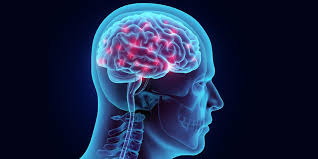A brain hemorrhage, or intracerebral hemorrhage, occurs when blood vessels in the brain rupture, causing bleeding in or around brain tissue. This sudden leakage of blood increases pressure in the skull, leading to damage of brain cells and disruption of vital brain functions. Many patients seek treatment from the best neurosurgeon in hyderabad for such critical conditions. Brain hemorrhages can be life-threatening and require immediate medical attention. Here’s a closer look at how they occur and the main factors that contribute to this condition.
Causes of Brain Hemorrhage
A brain hemorrhage typically happens due to weakened or damaged blood vessels in the brain. Several underlying factors contribute to this, including:
- High Blood Pressure (Hypertension): Chronic hypertension is one of the leading causes of brain hemorrhage. High blood pressure weakens blood vessel walls over time, making them prone to rupture.
- Aneurysms: An aneurysm is a balloon-like bulge in a blood vessel that develops due to weakened vessel walls. When an aneurysm ruptures, it can lead to a severe brain hemorrhage, often resulting in a subarachnoid hemorrhage (bleeding in the area between the brain and the tissues covering it).
- Head Trauma: Traumatic brain injuries from falls, accidents, or physical assaults can rupture blood vessels, especially in younger adults and the elderly. Trauma-induced hemorrhages often result in bleeding within or outside the brain tissue.
- Blood Vessel Abnormalities: Certain congenital or acquired blood vessel disorders, such as arteriovenous malformations (AVMs), increase the risk of rupture and subsequent hemorrhage.
- Blood Thinners and Other Medications: People taking blood-thinning medications, such as warfarin or aspirin, have an increased risk of brain bleeding. These drugs prevent blood clotting, making even minor blood vessel damage more likely to cause a hemorrhage.
- Liver Disease and Blood Disorders: Conditions that affect blood clotting can increase the risk of bleeding in various parts of the body, including the brain.
Mechanism of Brain Damage
When a blood vessel ruptures, blood collects in the surrounding tissue, creating a hematoma. This accumulation increases pressure within the skull, compressing brain tissue and obstructing oxygen flow to neurons. The combination of pressure and lack of oxygen can lead to irreversible brain damage if not treated promptly.
Conclusion
Understanding the causes of brain hemorrhage highlights the importance of managing risk factors like high blood pressure, avoiding head trauma, and carefully using medications. Recognizing symptoms early and seeking immediate medical care can improve outcomes and reduce complications associated with this serious condition.


